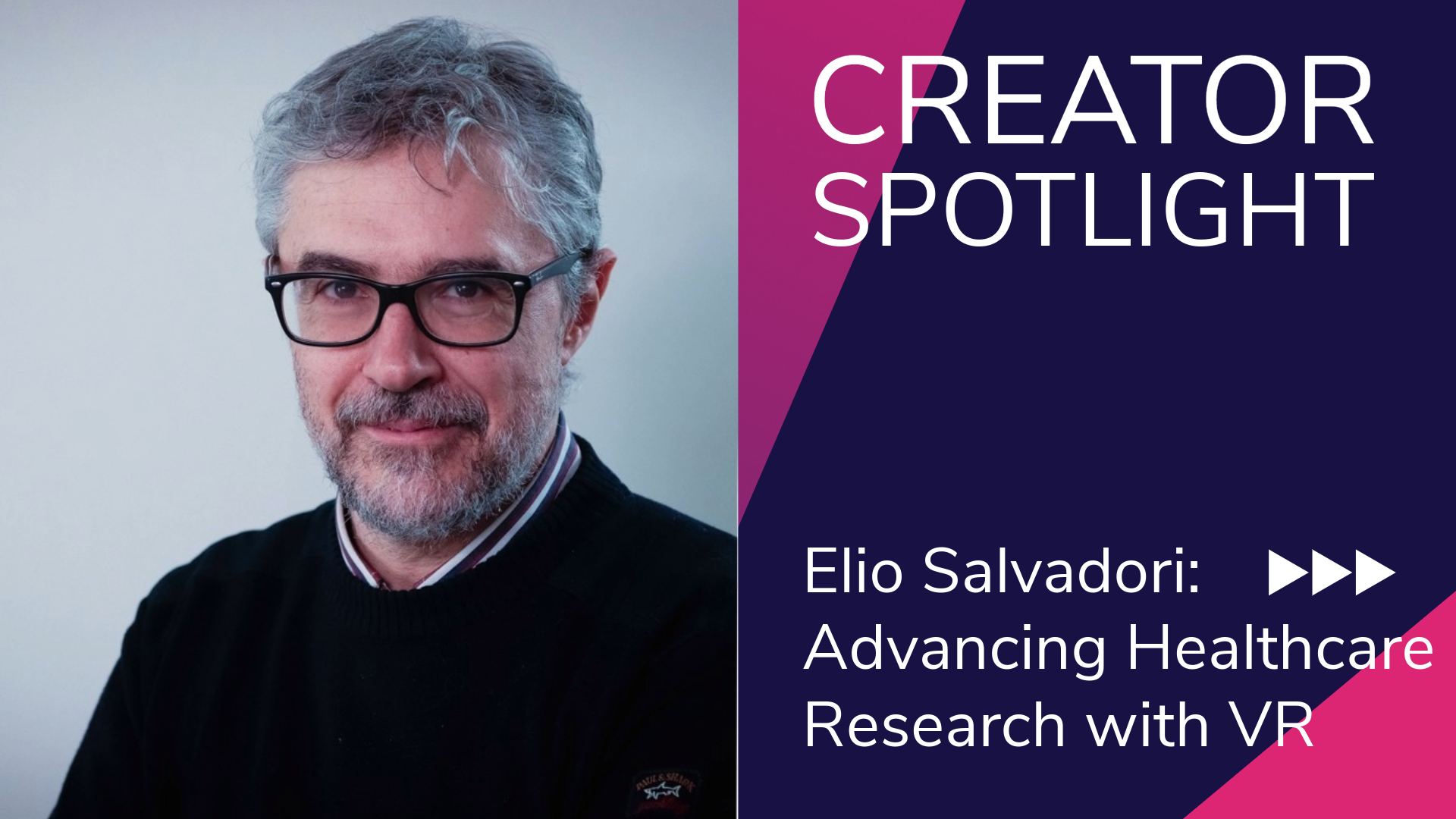
Elio Salvadori is a Senior Researcher at the Fondazione Bruno Kessler in Trento, Italy, where he has spent years exploring the intersection of technology and human behavior. While his career began in computer networking, Elio has transitioned into leveraging virtual reality (VR) to address challenges in healthcare, particularly in rehabilitation and cognitive improvement.
Virtual reality offers a unique capability to work on the cognitive system of people, opening doors to improved well-being and innovative treatments.
Pioneering VR in Healthcare
At Fondazione Bruno Kessler, Elio and his team focus on VR’s potential to modify and improve behaviors, aiming to enhance well-being and address specific health conditions. Their work involves developing prototypes and conducting pilot trials with patients to evaluate the effectiveness of VR-based interventions.
"We’re exploring how VR can retrain movements and improve quality of life for people with conditions like Parkinson’s disease," Elio explains. For example, his recent project involves creating mixed-reality environments for Parkinson’s patients, enabling them to practice essential movements in a gym setting augmented with digital objects. This approach gamifies rehabilitation, increasing patient engagement and motivation.
Creating with Zoe Immersive
Elio’s participation in the Zoe Creator Program provided an opportunity to integrate VR into his research more effectively. He highlights Zoe’s user-friendly interface and powerful features as key enablers for non-developers like himself.
"Zoe’s simplicity is its strength. It allows anyone to create meaningful interactions between users and virtual environments," Elio shares. Using Zoe, he designed a passthrough VR experience where Parkinson’s patients interact with digital objects overlaid on a physical gym. The ease of use and flexibility of the platform allowed him to focus on the therapeutic aspects rather than technical complexities.
Advice for Researchers
Elio encourages researchers to explore VR’s potential, emphasizing the accessibility of platforms like Zoe Immersive:
- Start small: Begin with basic interactions to understand the platform’s capabilities.
- Leverage documentation: Zoe’s comprehensive guides and demos make it easy to learn and implement.
- Iterate and innovate: Use patient feedback to refine prototypes and improve outcomes.
Engage with the community: Elio found value in Zoe’s responsiveness to user suggestions, which made the platform feel like a "living organism."
Don’t be intimidated by the technology. If you can use a PC, you can create impactful VR experiences.
Key Benefits of Using Zoe Immersive
- User-Friendly Interface: Perfect for non-developers.
- Rapid Prototyping: Quickly bring ideas to life.
- Community Engagement: Influence platform development with feedback.
- Scalability: Create both simple and advanced VR experiences.
What’s Next for Elio?
Looking ahead, Elio is excited about expanding the use of VR in healthcare and beyond. He envisions more advanced features and integrations that will make Zoe even more versatile for research and therapeutic applications.
"The possibilities with Zoe are endless. It’s a platform that grows with you and your ideas," he says.
Ready to bring your ideas to life in VR? Explore the Zoe platform today and start building the future. Apply for our Zoe Creator Program, which runs periodically throughout the year and is designed to take you through building your first immersive experience from the ground up.


